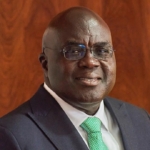
Chief of Staff Julius Debrah has warned that corruption is no longer confined to Ghana’s public institutions but is steadily creeping into schools, homes, and communities — a trend he says poses a grave danger to the country’s future.
Speaking at the launch of a five-day stakeholder engagement in Accra to draft a new National Ethics and Anti-Corruption Action Plan (NEACAP), Mr. Debrah cited the recent GH Probe–JoyNews exposé on widespread examination malpractice during the 2025 BECE as proof that unethical practices are taking root at an alarming rate.
“Recent events, including the exam malpractice exposed by Joy FM, remind us that ethical decay is not confined to our institutions only. It is creeping into our homes, our schools, and our future,” he cautioned.
According to the Chief of Staff, the previous NEACAP (2015–2024) offered lessons on the risks of underfunding and weak political commitment. He explained that the new framework, running from 2026, will be placed directly under the Office of the President to ensure stronger oversight and prioritisation.
Mr. Debrah stressed that corruption prevention must not be treated as a competing priority against health, education, or infrastructure, but as a fundamental prerequisite for development.
“If we fail to protect our resources, we will never have enough to build schools, hospitals, and roads. We will never create decent jobs for our youth or realize the 24-hour economy we envision,” he said.
He further underscored that ethics must form the backbone of the new plan. “Ethics must be central to the new plan, not just as a policy but as a national culture,” he declared, pledging government’s full commitment to funding the initiative.
“Let me be clear, this government is committed to funding this national ethics and anti-corruption action plan, because fighting corruption is not a cost — it is an investment,” he added.
